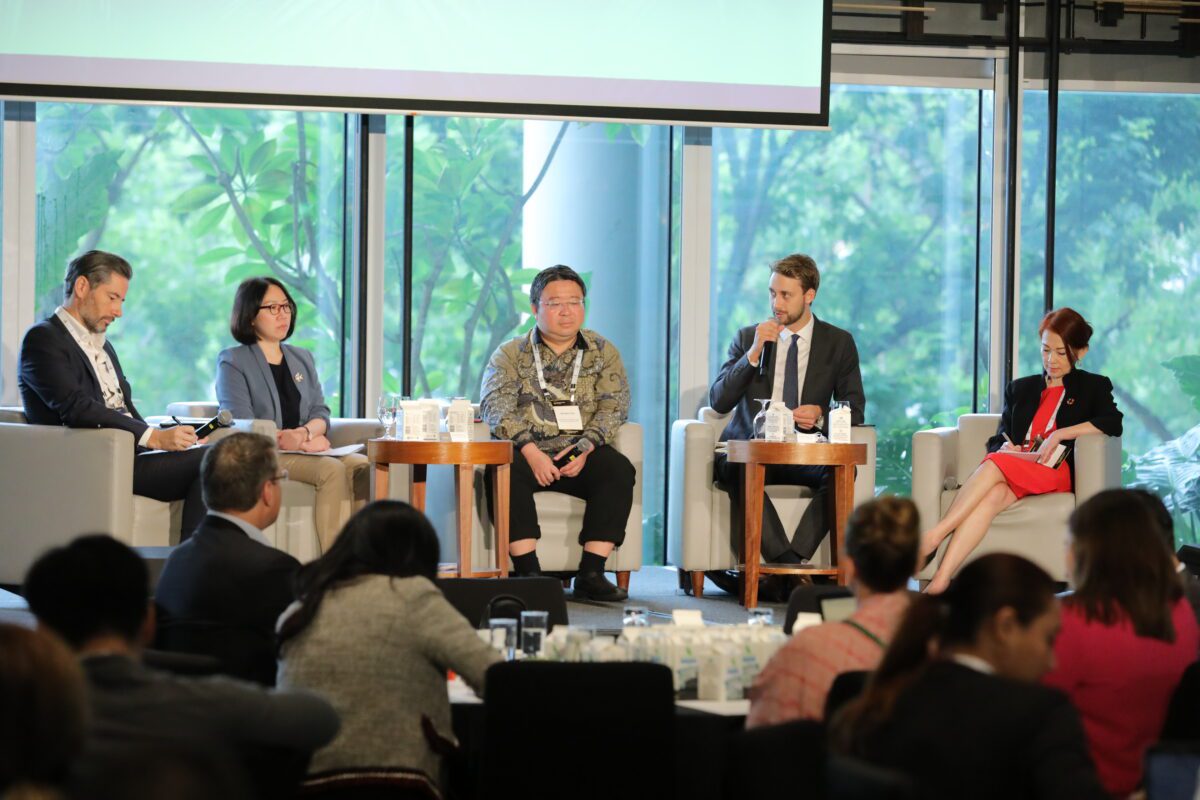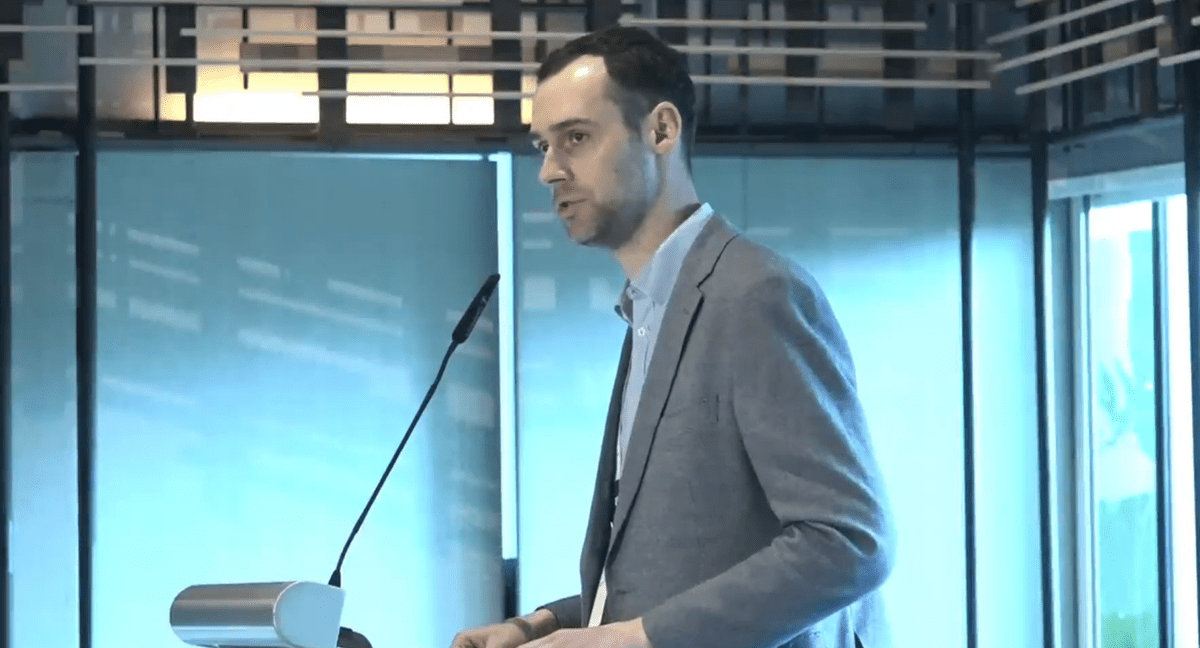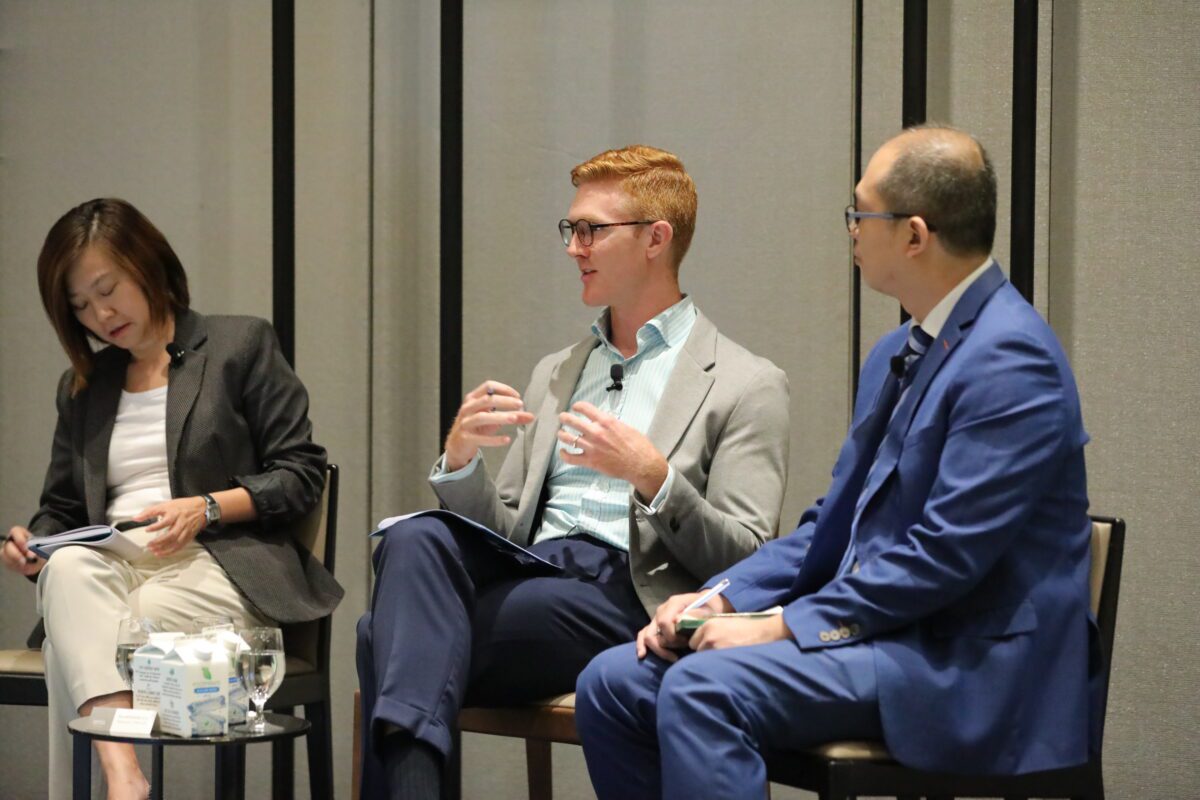A green economy agreement between Singapore and Australia could deliver a template for regional renewable energy trading, and for zero-tariff trading in environmental goods and services, officials from the two countries told the Carbon Market Institute’s inaugural Singapore Carbon Market & Investor Forum.
The many facets of the Singapore-Australia Green Economy Agreement include provisions focused on developing the “standards and architecture” for renewable energy trading between the two nations, according to Damian Chan, executive vice-president of environmental sustainability with the Singapore Economic Development Board.
Once that is achieved, it could be replicated elsewhere in South-east Asia, he told the opening plenary of the forum.
Angela Robinson, Deputy High Commissioner with the Australian High Commission in Singapore, told the forum that the Green Economy Agreement between Singapore and Australia also specifies about 370 environmental goods and 160 services “that are now zero tariff”.
Some might question the point of such a list, given that there is already a free trade agreement between the two nations, Robinson acknowledged.
But the purpose is to “have something we can take to the world” and highlight in other trade negotiations how zero tariffs can be applied to environmental goods and services, Robinson said.
Robinson described the first-of-its kind agreement – which blends trade, economic and environmental objectives – as an example of “best practice” climate diplomacy.
Opening the forum, Carbon Market Institute CEO John Connor said that the success of South-east Asia’s efforts to fight climate change “matters a great deal” and it is therefore critical to continue to generate action, innovation and investment in the region.
Connor noted a recent report on South-east Asia’s green economy, prepared by businesses including Bain & Company, which points out that the region is one of the world’s largest energy consumers, with 80% of that energy coming from fossil fuels.
In addition, the region accounts for 70% of global emissions from land use and forestry.
The report also points out that eight of the 10 countries making up South-east Asia have a capacity to meet their energy demand entirely from renewables (except for Singapore and Brunei), and collectively the 10 countries can more than meet their energy needs from renewables, Connor said.
However, the region also has significant potential carbon sinks, with 15% of the world’s forestland located in South-east Asia, he said.
In summary, “there are great challenges and great potential here in this region”, Connor said.
Tom Moody, South-East Asia Climate and Technology Director with the UK Foreign, Commonwealth and Development Office, told the opening plenary that carbon markets “have a key role to play in delivering on the commitments of the Paris agreement by mobilising public and private finance globally”.
Moody said that Singapore, along with Norway, had played a crucial role in helping to secure agreement on so-called Article 6 carbon market rules at UN climate talks in Glasgow in 2021.
South-east Asia’s first carbon credits trading exchange, Climate Impact X, had also been launched in Singapore last month, he noted.
“The UK sees carbon markets is playing a crucial role in South-east Asian countries meeting climate goals,” Moody said.
“The region benefits from some of the most abundant natural forests and biodiversity of the planet, which benefit all of us,” he added. “Carbon pricing is an important tool to appropriately value and protect those assets.”
Patrick Suckling, Senior Partner with global carbon and nature investment and advisory firm Pollination, told the forum that there is widespread recognition in the region of the potential to use market mechanisms to protect and restore nature.
There is an “extraordinary focus”, particularly in Asia, on developing nature-based solutions that are capable of simultaneously tackling the twin climate and biodiversity crises, said Suckling, who is a former top Australian climate diplomat.
Mara Chiorean, Director of Sustainable Finance with Australian bank ANZ, also praised the crucial role played by Singapore in helping to finalise carbon market rules at UN climate talks in Glasgow in 2021, however noted the investment required to drive meaningful scale.
“There is a $3 – 5 Trillion annual gap – out of a $9 Trillion annual need – in investment currently,” she said.
Chiorean added that ANZ, which has a minority stake in Pollination and has established an environmental markets team, recognises that the financial sector’s skills in efficient capital allocation will be essential as part of efforts to ensure there are much greater capital flows towards decarbonisation initiatives.
CMI contact in Singapore: Emily Tammes on (+61) 427 047 395 or emily.tammes@carbonmarketinstitute.org
CMI contact in Australia: Thomas Hann on 0408 880 536 or thomas.hann@carbonmarketinstitute.org
About the Carbon Market Institute
The Carbon Market Institute (CMI) is a member-based institute accelerating the transition towards a negative emissions, nature positive world. It champions best practice in carbon markets and climate policy, and its over 150 members include primary producers, carbon project developers, Indigenous organisations, legal, technology and advisory services, insurers, banks, investors, corporate entities and emission intensive industries. The positions put forward constitute CMI’s independent view and do not purport to represent any CMI individual, member company, or industry sector.
For further information, contact Thomas Hann on 0408 880 536 or thomas.hann@carbonmarketinstitute.org



